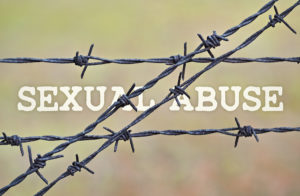 Nevada law provides strong protection for children from many different types of abuse and exploitation. One of the key things that the law exists to protect children from is sexual abuse. Crimes involving sexual conduct with children are among the most serious punished under Nevada law. Jail time is just one of the serious possible penalties that could result when a defendant is convicted of a crime involving a child.
Nevada law provides strong protection for children from many different types of abuse and exploitation. One of the key things that the law exists to protect children from is sexual abuse. Crimes involving sexual conduct with children are among the most serious punished under Nevada law. Jail time is just one of the serious possible penalties that could result when a defendant is convicted of a crime involving a child.
Crimes involving children not only include having sexual contact with a child, but also all types of offenses related to child pornography. There is a subsection of Chapter 200 — the chapter of Nevada’s penal code dealing with crimes against persons — that details the types of criminal behavior that can result in a defendant facing charges in connection with child pornography. One of the statutes within this subsection, Nevada Revised Statute section 200.720, specifically prohibits the unlawful promotion of a sexual performance of a minor.
If you are accused of promoting the sexual performance of a minor, you should be aware that you are facing Category A felony charges and at risk of serious penalties. You should contact LV Criminal Defense as soon as possible to talk with an experienced Nevada defense lawyer who can help you to decide on the best strategy for responding to these charges. We have a long track record of representing defendants accused of crimes against children and we can put our legal skill and experience to work to help you. Give us a call now to find out more.
Nevada Revised Statute section 200.720 explains the offense of promoting the sexual performance of a minor. According to the relevant statute, it is unlawful to promote a performance in which a minor engages in or simulates sexual conduct. It is also unlawful to promote performance in which a minor assists others in engaging in or simulating sexual contact.
N.R.S. 200.720 also makes it a felony offense to promote a performance of a minor in which the minor is the subject of a sexual portrayal.
The terms performance, promote and sexual portrayal for purposes of this statute are all defined in Nevada Revised Statute section 200.700. According to N.R.S. 200.700, performance is broadly defined to include any film, play, photograph, electronic representation, computer-generated image, or any type of visual presentation.
Nick Wooldridge has a long track record of representing clients accused of serious federal and state crimes in Nevada.
The term promotes also encompasses many different kinds of behaviors, including producing, directing, manufacturing, procuring, selling, lending, giving, publishing, distributing, advertising, exhibiting, or possessing for the purposes of distribution. This means if you give someone any type of image, depiction, of performance in any media that includes the sexual portrayal of a child, you could be charged with a felony offense.
The sexual portrayal is also defined within the definition’s section in N.R.S. 200.700 to include the depiction of a child in any manner that appeals to the prurient interest in sex. To be a sexual portrayal, the depiction of the child must not have a serious literary, artistic, political, or scientific value.
If a defendant promotes in any way the performance of a child in a sexual manner, the defendant could face penalties for a Category A felony as outlined in Nevada Revised Statute section 200.750. If the child in the performance is 14 or over, the defendant could face life with the possibility of parole, with eligibility for parole after five years. If the minor in the performance is under 14, the defendant could be subject to a penalty including life in prison with the possibility of parole after serving a minimum of 10-years. In both cases, the defendant could also face a fine of up to $100,000.
A Vegas criminal defense lawyer at LV Criminal Defense can provide you with representation if charges are being pursued against you for promoting the sexual performance of a minor. Give us a call today to find out how we can help.
When I initially met with Mr. Wooldridge, he took the opportunity to sit and go over my problem with me. He described details in my case which he found disturbing and explained why he I should have him on my side.